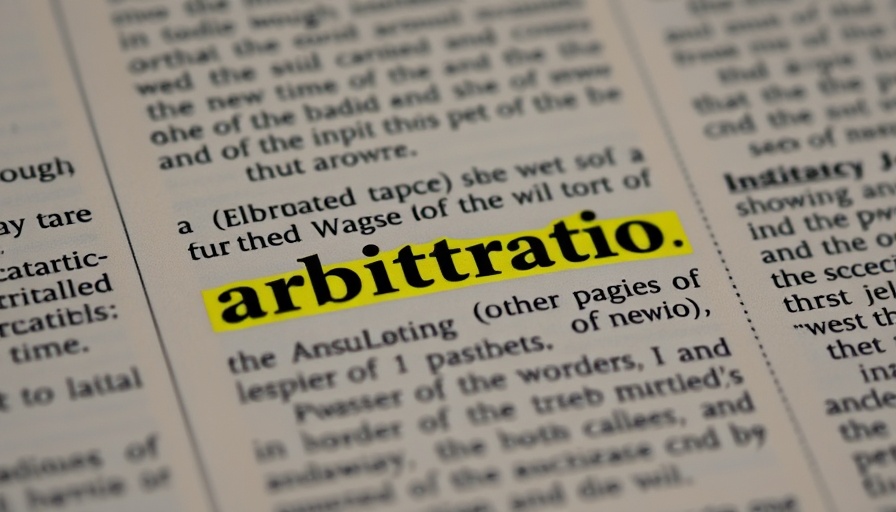
Understanding Arbitration in Insurance Policies
Arbitration clauses in insurance policies have emerged as a topic of concern for many policyholders, especially in South Carolina where property damage claims are prevalent. Originally intended to streamline dispute resolution, these clauses are increasingly being used by insurers to gain an upper hand against consumers. This discussion explores the evolving nature of arbitration in insurance—a process that often masquerades as efficiency while subtly promoting insurer interests.
The Historical Context of Arbitration
Arbitration dates back to early insurance frameworks, such as the Standard Fire Policy of Massachusetts from 1873. However, its present implementation in contracts diverges significantly from its historical purpose. Modern arbitration is less about informal resolution and more about enabling insurance companies to skirt state-imposed limits on arbitration practices. The Federal Arbitration Act (FAA) of 1925 facilitates this transformation, ensuring agreements to arbitrate are enforceable, yet it leaves much room for procedural ambiguity that can be exploited by insurers.
Why Modern Arbitration Favors Insurers
Today's arbitration process often mirrors litigation rather than providing a truly efficient alternative. Insurers typically draft arbitration clauses that lack specificity, failing to detail the governing rules or procedural frameworks. As a result, policyholders find themselves in an environment that reflects a courtroom rather than the informal setting intended. This often puts insured individuals at a significant disadvantage, allowing insurers to dictate the terms and conditions of the arbitration process.
The Impact of Bad Faith Practices
Arbitration has significant implications for bad faith insurance practices. Courts usually serve as a safeguard against unreasonable claim handling, enabling policyholders to challenge insurers effectively. However, with binding arbitration clauses, consumers lose this essential recourse. Insurers can exploit arbitration to shield themselves from accountability for bad faith claim settlements, significantly weakening consumer rights.
Cost Implications of Arbitration
Besides their procedural vagueness, arbitration cases often entail substantial costs that can pose barriers for average consumers. The high filing fees and costs associated with hiring arbitrators make it increasingly challenging for consumers, especially those who are already facing financial strain due to an insurance claim. Thus, many individuals may abandon their claims altogether, perpetuating the imbalance between policyholders and insurance companies.
Strategies for Policyholders: Fighting Back Against Denied Claims
For those grappling with claims delays or denials, understanding the arbitration process is crucial. Here are some actionable tips to empower policyholders:
- Document Everything: Keep thorough records of all communication and transactions related to your insurance claims.
- Engage Expert Assistance: Consider retaining an attorney or insurance advocate to help navigate complex arbitration clauses and the claims process.
- Know Your Rights: Familiarize yourself with state regulations regarding arbitration and your rights as a policyholder.
Conclusion: Reclaiming Arbitration for Fairness
It is vital for policyholders and their representatives to reclaim arbitration as a tool for equitable resolution instead of a mechanism for insurer advantage. This requires not only diligence in preparing claims but also a collective effort to push for more transparent arbitration practices. Insured consumers deserve a fair shake, and understanding these processes is the first step in demanding their rights.
If you are navigating property damage claims in South Carolina, it is essential to educate yourself on the intricacies of arbitration clauses in your insurance policies. For further assistance, consider consulting with an experienced adjuster or attorney who can guide you through your rights and options.
 Add Row
Add Row  Add
Add 




Write A Comment